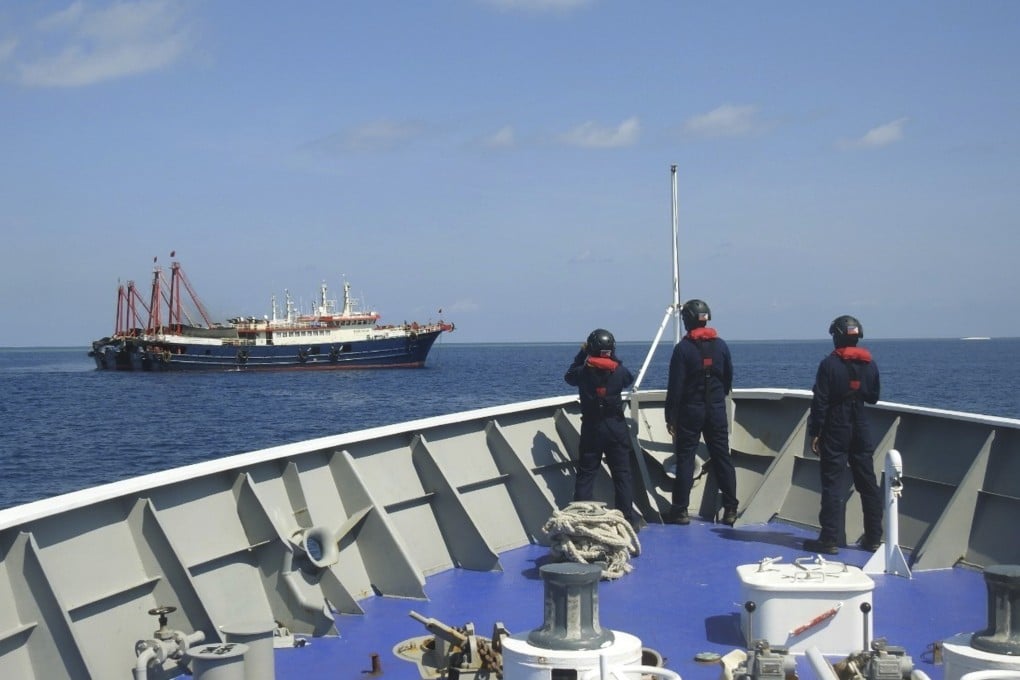South China Sea: Philippines accuses China of ‘dangerous challenges’ near Scarborough Shoal
- Manila says two of its vessels were affected during patrols and maritime exercises in the area
- Protests come as Beijing imposes a fishing ban in a large part of the disputed waterway

In a statement on Tuesday night, Hermogenes Esperon, a national security adviser to President Rodrigo Duterte, said the China Coast Guard conducted “shadowing, blocking, dangerous manoeuvres and radio challenges” to two Philippine Coast Guard vessels in the waters near the shoal late last month.
The shoal is a group of tiny, low-lying rocky islets off the east coast of Luzon, the main island in the Philippines, and is claimed by both countries. It is known as Huangyan Island in China.

01:05
Philippine coastguard sends strong warning to Chinese vessels during South China Sea patrol
The statement did not say how many Chinese vessels were involved or how the encounter developed, but it did add that Philippine Coast Guard vessels were on their way to the area “to enforce our fisheries laws and protect our fishermen” as part of the rotational patrols of Scarborough Shoal.